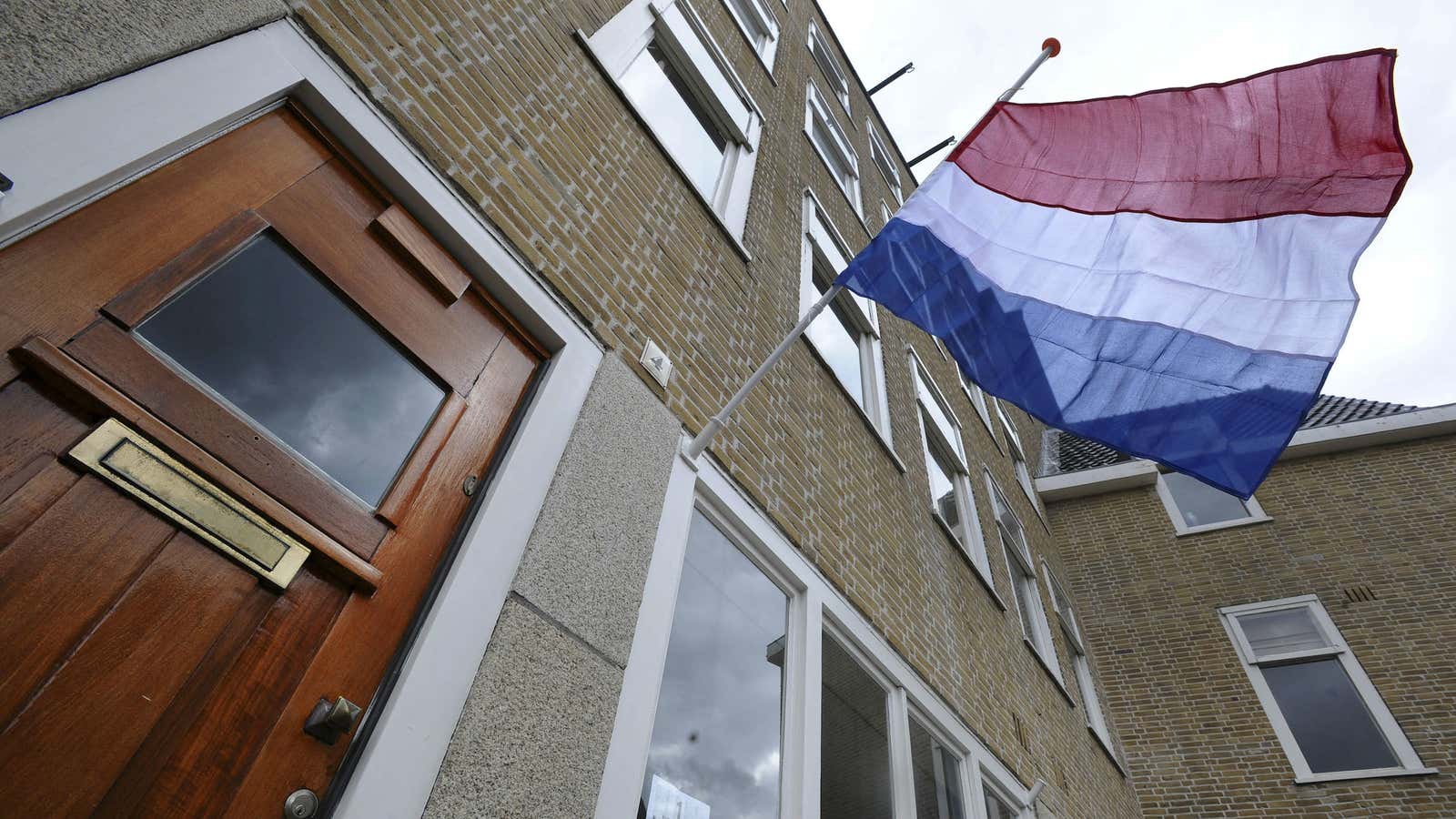Earlier today, the Netherlands nationalized the struggling bank and insurance group SNS Reaal. The smallest Dutch bank to be deemed “systemically important,” the bank has for months been gathering funding to stem losses mostly from its property unit.
The government says that of the €3.7-billion package, €2.2 billion ($3 billion) will be a capital injection, while the rest will help minimize SNS’s debt burden and the losses from its real estate assets.
The rescue is another indication of just how many European banks are still having trouble five years after the worst of the global financial crisis. Credit Agricole today announced a €2.7 billion write-down and Germany’s Deutsche Bank posted a loss of €2.2 billion the day before.
The move also draws attention to the story of a troubled euro zone country, the currency bloc’s fifth-largest economy, that has mostly flown under the radar. The Netherlands is suffering from anemic consumer spending—it’s at a three-year low—falling housing prices, government austerity and slumping exports. Last month, the country’s central bank said the Dutch economy was in worse shape than originally thought and expected its economy would likely shrink in 2013.
SNS’ nationalization also points to the weakness of the Dutch financial sector. SNS is the second of the country’s four banks labeled “systemically important,” or too big to let fail, to be nationalized. At the height of financial crisis, the government spent almost €40 billion to rescue the sector, taking control of the bank ABN Amro Holding while also giving aid to ING Groep, the country’s largest financial services company. The government announced today a one-time €1 billion levy on Dutch banks that will go to helping the financial sector.
This also flags another source of potential worry: Netherlands property prices. SNS’s troubles were mostly in its property unit, which held some €9.8 billion in real estate assets as of the end of September, including €2.3 billion non-performing loans. Houses are now worth 17% less than their peak in 2008, after falling to their lowest level in nine years in December. The Netherlands’ National Association of Estate Agents predicts prices will fall another 7% this year. Already, almost 10% of Dutch homeowners are underwater. This spells trouble for both Dutch citizens and the country’s banks, for whom about a third of lending is for mortgages.




